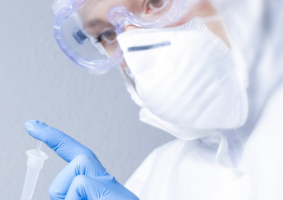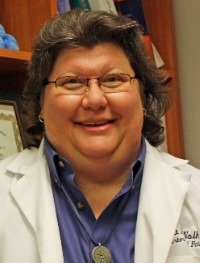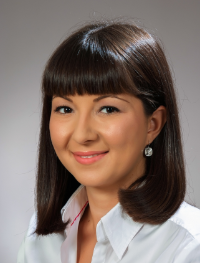The Importance of Molecular Testing to Detect New SARS-CoV-2 Mutations

Title: The Importance of Molecular Testing to Detect New SARS-CoV-2 Mutations
Date: June 16, 2021
Time: 1 p.m. ET
Presenters: Donna M. Wolk, MHA, PhD, D(ABMM) and Jelena Feenstra, PhD
Strategies for Fighting the COVID-19 Pandemic
The emergence of novel SARS-CoV-2 variants can have profound effects on efforts to fight the ongoing pandemic. Besides potentially being more transmissible or more lethal, emerging variants can affect diagnostic assays and lead to therapy resistance or reduced effectiveness of vaccines for coronavirus disease 2019 (COVID-19). In this webinar, you’ll get an overview of the approaches for genetic and genomic surveillance a laboratory can apply, depending on the technology and resources available, in order to detect and discover new mutations in SARS-CoV-2.
You will also learn about the major molecular diagnostic methods and common molecular viral targets used for testing patient samples for SARS-CoV-2.
Learning Objectives
This webinar will help you:
- Describe how the different categories of SARS-CoV-2 tests are used to detect SARS-CoV-2 in patient samples
- Contrast SARS-CoV-2 diagnostic testing with testing for the purpose of surveillance and epidemiology
- Explore the currently circulating SARS-CoV-2 variants, the mutations that characterize them, and their functional effects on the biology of the virus
- Understand different options for the detection, differentiation, and discovery of emerging SARS-CoV-2 variants using genetic approaches
Watch on Demand Download Dr. Wolk's Slides (PDF, 2MB) Download Dr. Feenstra's Slides (PDF, 3.3MB)
For research use only. Not for diagnostic procedures.
This webinar is produced by Whitehat Communications, a provider of continuing education programs in clinical laboratory sciences that has been approved by the ASCLS P.A.C.E.™ Program. One P.A.C.E. credit hour will be provided for this complimentary, basic-level program.
Presenters

Donna M. Wolk, MHA, PhD, D(ABMM)*
Dr. Wolk serves as the division director for molecular and microbial diagnostics and development for the Department of Laboratory Medicine at Geisinger in central Pennsylvania. She is the lead investigator for Geisinger’s Center for Laboratory Innovations and Outcomes where her translational research focuses on evaluation and evidence-based integration of new technology for infectious disease diagnostics. She is also a professor at Geisinger Commonwealth School of Medicine.
As a Diplomate of the American Board of Medical Microbiology (ABMM), Wolk’s professional practice extends to the national and international level, supporting initiatives in clinical and molecular microbiology, evidence-based laboratory medicine, and laboratory leadership. She also serves on the Clinical Laboratory Improvement Advisory Committee (CLIAC), managed by the Centers for Disease Control and Prevention, to provide scientific and technical guidance to the U.S. Department of Health and Human Services.

Jelena Feenstra, PhD
Dr. Feenstra is a senior manager of Global Scientific Communications for Thermo Fisher Scientific. In this role, she is responsible for driving medical and scientific affairs activities in Europe, the Middle East, and Asia, and works closely with the Global Market Development teams to help democratize molecular testing globally.
Feenstra has extensive diagnostic and research experience in genetics, cytogenetics, and genomics. She earned a PhD in experimental oncology from the Medical University of Vienna and has previously worked as a senior scientist at the Ludwig Boltzmann Institute in Vienna. She is the author of over 25 publications and a recipient of several awards from professional organizations such as the American Society of Hematology (ASH) and the UNESCO Fellowship for Women in Science.
*This speaker was compensated for her participation in this webinar.
